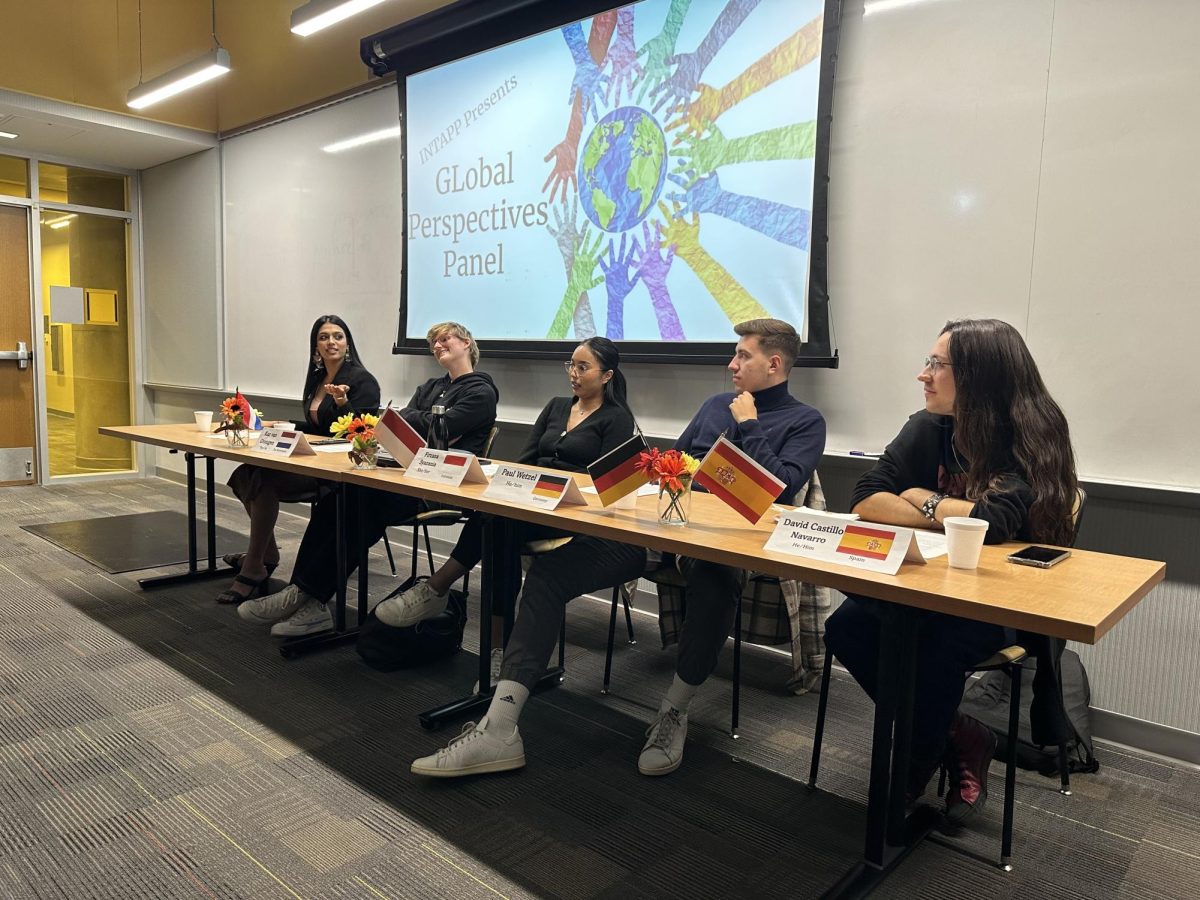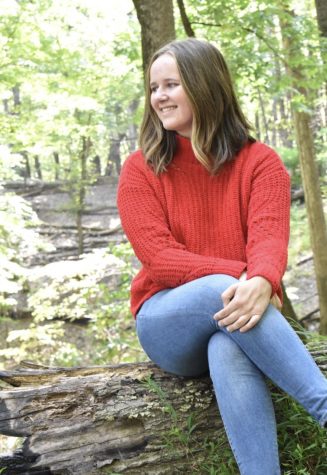International Appalachian hosted a Global Perspective Panel Monday from 5-7 p.m. where international students studying at App State shared their perspectives with attendees.
The panel, held in the Beacon Heights room in the Plemmons Student Union, featured five panelists: David Castillo Navarro from Spain, Paul Wetzel from Germany, Firzana Syazania from Indonesia, Kaz van Groningen from the Netherlands and Preet Patel from India.
The event was held during International Education Week at App State, a week where International Appalachian, also known as INTAPP, partners with the university to provide information about the global world and international students studying at App State.
INTAPP is an organization that aims to attract more international students to App State and encourage current students to study abroad while also creating opportunities for domestic and international students to interact and share experiences with one another, according to the INTAPP website.
The panelists were asked a series of questions that prompted them to share their own perspectives from their respective countries.
Afterward, a Q&A session was open to attendees where they could ask various questions to the panelists.
Panelists were first asked what their motivations were for studying abroad at App State.
Castillo Navarro said he decided to study in the U.S. to gain an international perspective.
“I wanted to immerse myself in another culture,” he said.
Van Groningen said they wanted to come to the U.S. to see what the country was like and to see the differences between their culture and U.S. culture.
The panelists were also asked about their first impressions of App State.
Wetzel said his first impression of App State was the introduction of the various events offered to incoming international students, saying he enjoyed them.
Patel also said she enjoyed the Open Week orientation events available to incoming students.
Syazania said her first impression of App State was the drastic change of landscape after living in a city with no mountains.
The panelists discussed their thoughts on the healthcare system in the U.S. as well as their experiences with education at App State.
Van Groningen said they enjoyed the closer relationship between educators and students, as they experienced “more distance between the students and professors” from the education system in the Netherlands.
The students discussed their experiences of culture shock after arriving in the U.S. and the differences they noticed after arriving.
Patel said one aspect of the culture shocks she experienced was the frequency at which she saw the U.S. flag and heard the U.S. national anthem at events.
Another shock to Patel was going from living with 13 people back home to living in an apartment by herself. She said living with her extended family, which included family members her age, allowed for multiple opportunities for support.
“It’s like a community inside the house,” she said.
The panelists ended their conservation on the topic of the possibility of extending their stays in the U.S.
Syazania said the H-1B visa application process can be tedious and it is often difficult to obtain one.
According to the U.S. Citizenship and Immigration Services website, a H-1B visa is a nonimmigrant classification that “applies to people who wish to perform services in a specialty occupation.”
The website says that applicants must have at least a bachelor’s degree or equivalent, a valid job offer in their field of work and proof from the employer that there is a shortage or lack of U.S. citizen applicants in the field.
“It’s a 13% chance that you would get chosen for H-1B,” she said.
During a question about what piece of advice she would offer to prospective international students, Patel said students should be prepared and consult the help of others during the process of studying abroad in the U.S. She said students should develop plans and goals in advance prior to graduation if they chose to stay in the U.S.
“Every international student needs to have a gameplan,” she said.


